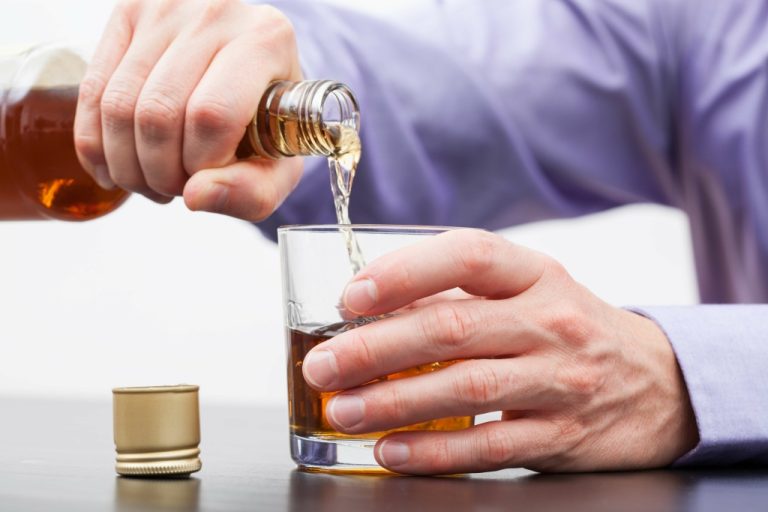Acknowledging the impact of past behaviors on oneself and others drug addiction treatment creates space for personal responsibility and growth. Recovering from feelings of guilt during addiction recovery is a multi-faceted process. It begins with understanding the distinction between appropriate and toxic guilt; the former can motivate positive change, while the latter often triggers anxiety and depression.
How can I cope with the shame of relapse in addiction recovery?
Even something as simple as going for a walk or writing down three things you’re grateful for can make a big difference over time. Think about how you would treat a friend who made the same mistakes—would you tell them they’re beyond help, or would you encourage them to keep going? They remind us that we are more than our past and encourage us to embrace the hope and healing that the steps offer. If you have any other questions or comments, then feel free to e-mail or call using any of the information below. Studies from American Addiction Centers highlight the correlation between shame and anxiety disorders. Guilt across age groups can trigger chronic stress and life satisfaction issues.
Coping with Relapse and Associated Shame
Productive guilt, when directed towards making amends and promoting positive change, can motivate individuals to foster healthier relationships and continue their recovery process. Practicing self-compassion and connecting with supportive peers further aids in this journey. Guilt is the emotion that arises when someone feels they have done something wrong or failed to meet personal standards, often linked to specific actions or promises made during addiction. In contrast, shame is a deeper, more pervasive feeling of inadequacy or worthlessness, leading individuals to see themselves as inherently flawed. Recovery from addiction is a multifaceted journey, deeply intertwined with emotional challenges such as guilt and shame.
Ongoing Aftercare and Maintenance in Addiction Recovery
- In the journey of addiction recovery, feelings of shame and guilt are common but carry different emotional weights and implications.
- In conclusion, the art of releasing guilt and shame lies in acknowledging them without allowing them to define your identity.
- When acknowledged properly, guilt encourages individuals to make amends, seek forgiveness, and commit to healthier behaviors, fostering a sense of responsibility and personal growth.
Mindfulness techniques can help you stay grounded in the present moment. If you’ve hurt someone during your addiction, making amends can help ease guilt. However, it’s important to do this in a healthy way with the guidance of a therapist or sponsor. Shame, on the other hand, comes from internalizing that guilt and believing you’re a bad person because of your addiction.
- If you can’t dignify yourself as a human being worthy of self-respect, a cascading set of toxic thoughts follow close behind, which could end in relapse or suicide.
- This involves accepting responsibility, making amends where possible, and letting go of blame.
- By sharing their experiences and feelings with others, individuals can begin to break free from the isolation that often accompanies shame and guilt.
- This process includes sharing vulnerabilities and facing uncomfortable feelings in a safe environment.
Guilt is an appropriate response to these revelations, but should not be clung to once apologies and amends are made. Therapeutic tools, such as narrative therapy or mindfulness practices, help reframe negative beliefs rooted in past experiences. This awareness fosters acceptance, reduces self-blame, and facilitates self-forgiveness, which are vital steps toward emotional well-being. Personal failures, like addiction-related mistakes, legal issues, or broken relationships, can generate guilt. These situations often remind individuals of their perceived shortcomings, fueling negative self-talk.
![]()
- Viewing oneself as deserving of forgiveness can significantly contribute to healing.
- At the very bottom of the barrel is what the DSM calls substance use disorders.
- You most likely will feel ashamed and guilty about your addiction and the damage it made you do to yourself and those around you.
Self-care encompasses activities that people engage in to take care of their physical, emotional, and mental health wellbeing. Regular self-care practices can improve mood, well-being, reduce stress levels, and prevent burnout. All guilt and shame in recovery of these strategies have been thoroughly researched and have proven to be successful in helping individuals cope with shame and guilt during addiction recovery.

Joining a 12-Step Program for Continued Support
A great way to alleviate some of the feelings of guilt and shame you may have is to take responsibility for your past actions and make amends whenever possible. Doing so won’t just help get rid of some of the guilt and shame, it can also help repair relationships. Individuals grappling with shame may resort to substance use as a form of self-medication, seeking to dull the pain of feeling inadequate.
